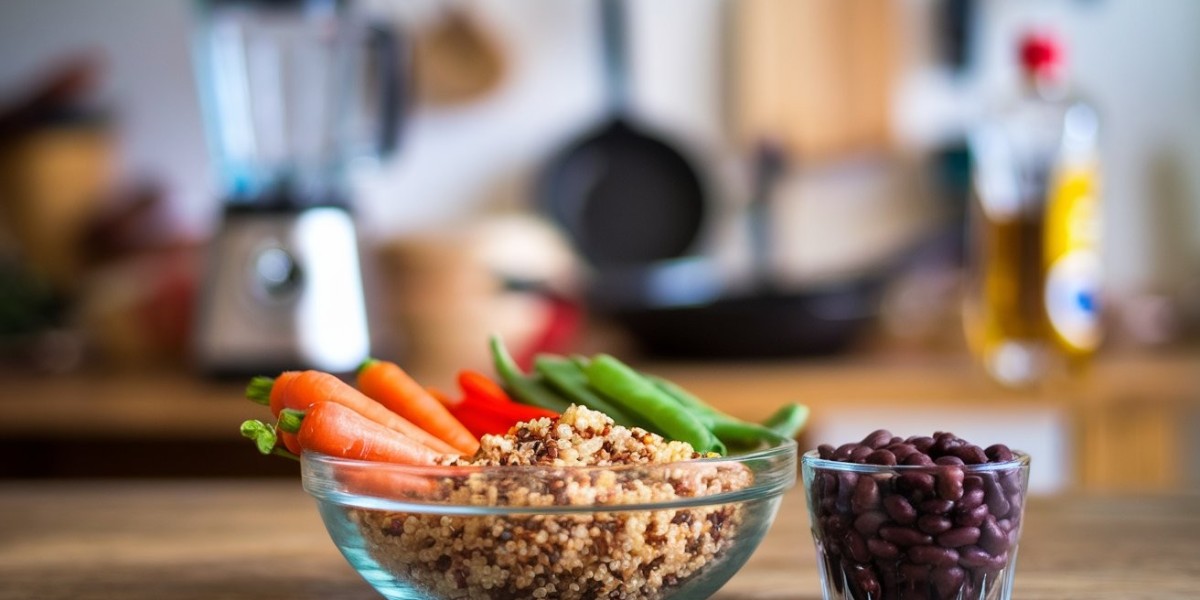Following a vegan lifestyle while managing digestive issues can be tricky, but it’s entirely possible. If you’re struggling with Small Intestinal Bacterial Overgrowth (SIBO), you may wonder if a sibo diet vegan approach is realistic. The good news is that with a little planning and smart food choices, you can manage your symptoms and still honor your plant-based values.
What Is SIBO?
SIBO stands for Small Intestinal Bacterial Overgrowth, a condition where too many bacteria grow in the small intestine. This imbalance can cause uncomfortable symptoms, including:
Bloating
Gas
Abdominal pain
Diarrhea or constipation
Nutrient malabsorption
The most effective way to treat SIBO often includes antibiotics, followed by dietary changes that reduce fermentable carbohydrates (FODMAPs), which feed the bacteria.
Challenges of a Vegan SIBO Diet
A traditional SIBO diet (like the low FODMAP or the Specific Carbohydrate Diet) can be heavy on animal protein, making it difficult for vegans. However, many plant-based foods are naturally low in FODMAPs and can be included in a well-balanced vegan SIBO meal plan.
The key challenge? Finding enough plant-based protein sources and avoiding high-FODMAP legumes, grains, and veggies.
Vegan-Friendly Low FODMAP Foods
Here are some SIBO-friendly foods you can include on a vegan diet:
✅ Vegetables (Low FODMAP)
Zucchini
Spinach
Carrots
Red bell peppers
Cucumbers
✅ Fruits (Low FODMAP)
Strawberries
Blueberries
Kiwi
Oranges
Unripe bananas
✅ Grains and Starches
Quinoa
Rice
Gluten-free oats
Potatoes (in moderation)
✅ Plant-Based Proteins
Firm tofu (not silken)
Tempeh
Small amounts of canned lentils (rinsed well)
Chia seeds, hemp seeds, and flaxseeds
✅ Fats
Olive oil
Coconut oil
Avocados (limited to ⅛ per serving)
Meal Planning Tips for a Vegan SIBO Diet
Start with an elimination phase: Focus on low FODMAP plant-based foods for 4–6 weeks.
Reintroduce slowly: Gradually test high-FODMAP foods to see what you tolerate.
Balance your meals: Combine protein, fat, and carbs in every meal to stabilize blood sugar and reduce bloating.
Work with a dietitian: Vegan diets are already limited, and SIBO adds another layer. A professional can help you stay balanced.
Sample Vegan SIBO Meal Plan (1 Day)
Breakfast: Chia seed pudding with almond milk and strawberries
Lunch: Quinoa salad with tofu, spinach, red bell pepper, and olive oil
Snack: A small handful of walnuts and a kiwi
Dinner: Stir-fried zucchini and tempeh over rice
Dessert: Blueberries with a drizzle of maple syrup (optional)
Supplements to Consider
Because of food restrictions, some nutrients may be hard to get on a vegan SIBO diet. You may need supplements for:
Vitamin B12
Iron
Zinc
Omega-3 (from algae oil)
Probiotics (if tolerated)
Always check with a healthcare provider before adding any supplements to your routine.
Final Thoughts: Is a SIBO Diet Vegan?
Yes—it absolutely is. A sibo diet vegan plan requires extra attention, but it’s doable with the right food choices, support, and patience. By focusing on low FODMAP plant-based foods and reintroducing others slowly, you can support your gut health without compromising your values. Remember, healing takes time, and every small step counts.



